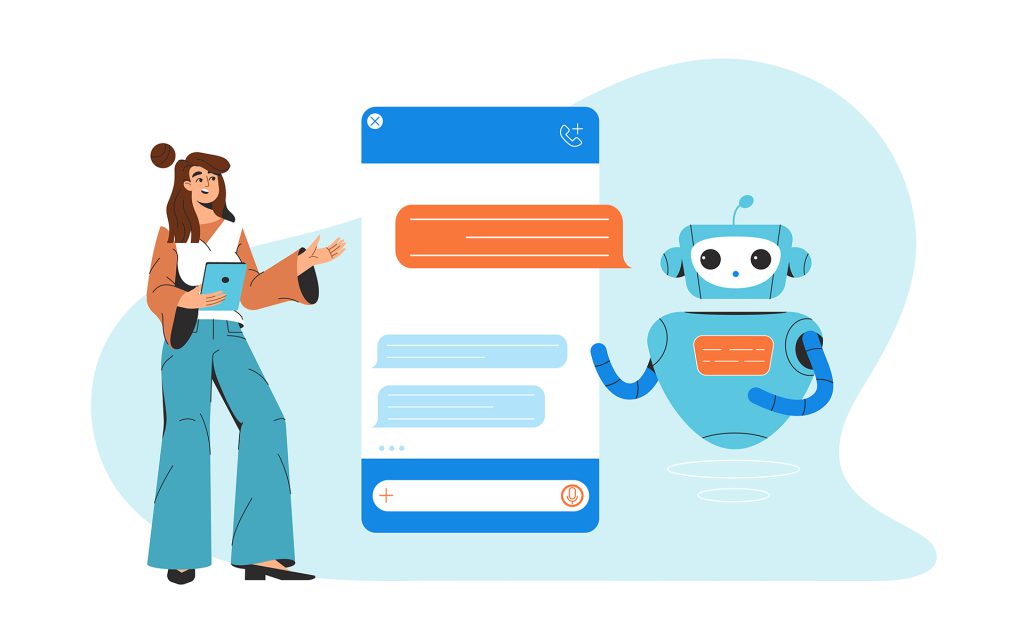What is a ChatBot?
A chatbot is a computer program created to mimic conversations with real people, particularly online. While maintaining a constant and individualized interaction, chatbots are frequently utilized to answer customer support concerns, offer product recommendations, and even manage sales inquiries. Businesses may provide round-the-clock customer service without the need for extra labor because chatbots can work around the clock. As a result, there may be a rise in customer satisfaction and loyalty as well as an increase in general effectiveness. However, it’s crucial to think about the moral ramifications of utilizing chatbots and to make sure they’re not being used to trick or mislead customers or take the place of actual employees.
Types of ChatBots
There are various varieties of chatbots, such as:
- Rule-based chatbots: These chatbots are built to adhere to a set of rules to decide how to react to particular inputs. They may be developed reasonably easily and are useful for performing simple tasks like responding to frequently requested questions.
- Machine learning-based chatbots: These bots employ algorithms to learn from data and get better over time. They may require more effort to design but are capable of handling a greater variety of activities and user interactions.
- Task-specific chatbots: Chatbots that are designed to perform a specific activity, such as offering customer support or making product suggestions, fall under this category.
- General-purpose chatbots: General-purpose chatbots are more adaptable and are capable of handling a variety of jobs and user interactions.
- Platform-specific chatbots: Chatbots created for certain platforms, like websites or messaging apps, are referred to as platform-specific chatbots.
- Physical device chatbots: These chatbots are voice-activated and built into physical devices like smart speakers.
- Possible advantages of chatbots
Potential benefits of ChatBots
The use of chatbots in business has a lot of potential advantages. Chatbots can help organizations save money by lowering the need for human labor, in addition to enhancing customer service and boosting efficiency. Chatbots can manage a large volume of user interactions and frequently solve problems or provide answers more quickly than human personnel. Chatbots can also be built to handle several languages, which makes them especially helpful for businesses with a worldwide clientele or those wanting to enter new markets.
Conclusion
To make sure that chatbots are not being used to trick or mislead clients, it is crucial for organizations to thoroughly assess the ethical ramifications of their use. Additionally, it’s critical to create a balance between using chatbots and actual staff because some jobs are better left to people. Businesses can fully profit from chatbots while upholding moral standards by properly integrating them into their processes and regularly tracking and analyzing their performance.





